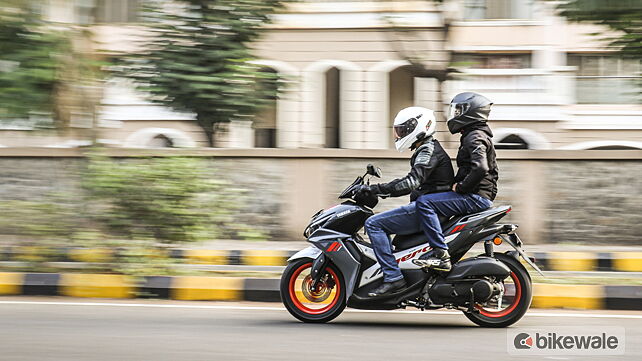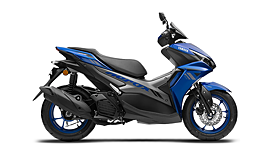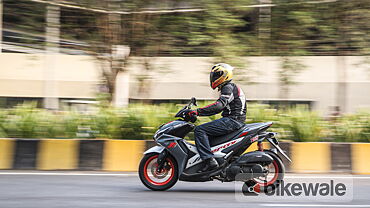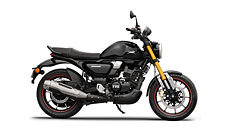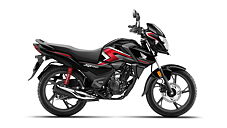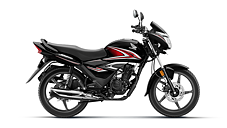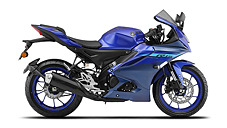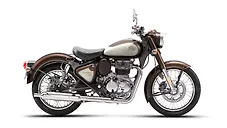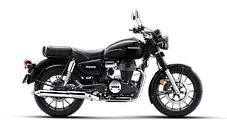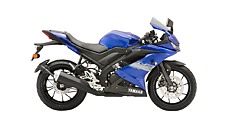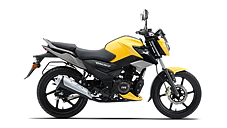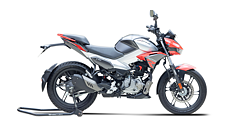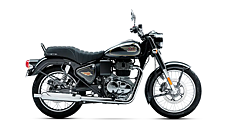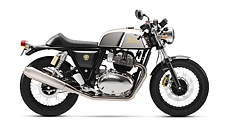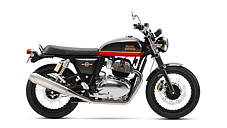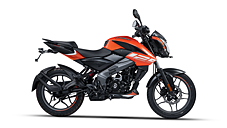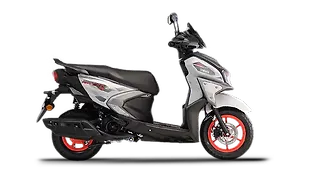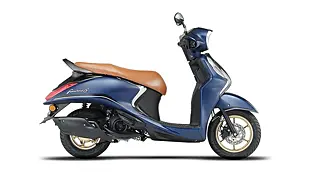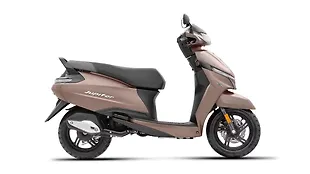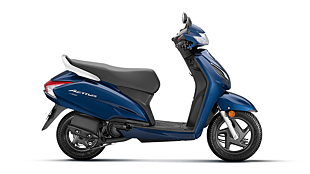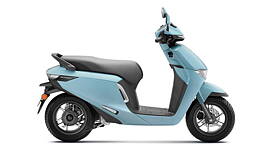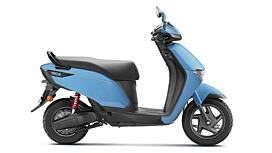Introduction

We are at a traffic signal, a TVS Ntorq and I. The Ntorq rider has been eyeing my scooter since he pulled up alongside. He isn’t sure what it is. But, he knows it is something new, something different, and something that might threaten his status quo. More so, because he is riding a properly sporty twist and go. And I can see he wants to prove that he is still the alpha male. That, interestingly, can only mean one thing - going hell for leather the moment the lights turn green. A proper traffic light MotoGP it is then!
This isn’t the first or only time this has happened to the Yamaha Aerox and me. We have had these GPs with Pulsars and Apaches and even a Versys 650! The result is always the same. We are quicker off the line and stay ahead till we hit 60kmph. Then when I see the bigger bikes closing in on me, I begin rolling off and level at 80kmph. Seconds later, they go past me in a fury of speed engine screaming and they fuming inside their helmets. I on the other hand find myself having a good laugh under mine. Barring the Ntorq of course; which was a mere spec in the Aerox’s rear-view mirror before it hit 100kmph.
And it is this absolutely unnecessary and childish behaviour that the Aerox brings out in me, which makes me want to ride it so much.
But, let’s get sensible for a minute. The goal with this report is to tell you, the reader, what’s good and what’s not about the Aerox when it comes to daily commuting in the city. And as always, let’s begin with the good things.
What’s good?

Seating ergonomics. The Aerox has a lovely seating triangle for a scooter. And one that can be changed on the fly! With the feet fully forward on the floorboard, it makes for relaxed seating that goes well with commuting on well-paved, straight roads. When the roads deteriorate, moving one’s feet more towards the middle of the floorboard allows the rider to take his or her weight off the seat and ride over the bumps and potholes without being kicked in the back. And if it’s hurried filtering through traffic one wants, all it takes is moving the feet right back on the floorboard. This allows the rider to grip the central spine with his or her feet for better stability and control for fast but precise steering inputs, throttle openings, or hard braking.

Smooth operator. Be it the way it starts up, or the way it sounds and feels at 115kmph, the Aerox has this near vibe-free, stress-free, and cosseting way of carrying itself that’s hard not to like. It’s the same with the non-intrusive way the start-stop functions. Instead of feeling bugged with it, which is the case with most others (cars included), the Aerox system is near seamless and almost intuitive.
Performance. 155cc. 15bhp. These are figures that are unprecedented in the scooter space in India. And it comes with a pleasant surprise. The Aerox’s natural riding speed is around 70kmph. This means, if I were to stay very light on the throttle while cruising, and look down at the speedo, I will find the Aerox sitting at 70kmph or thereabouts almost every time. In fact, it is riding slower that requires effort and planning on the rider’s part. To keep the Aerox at 60kmph or lower, one has to coast for majority of the time with throttle inputs being gentle and few and far in-between. Needless to say, when you wring the throttle to the stops, chances are you will be among the fastest things on a city road. Again, effortlessly.

Under-seat storage. It’s an eternal scooter question: What’s more useful - a wide floorboard space or huge under-seat storage? I would go with the latter when it comes to daily office commute. Large underseat storage means your office bag, and with it your tiffin and water bottle, not to mention the coffee tumbler, can all comfortably sit under the seat. Put the bag on the floorboard, however, and if it’s not your day, you might just find yourself on the ground with the scooter on top. Because, well, the bag strap happened to wrap itself around your feet leaving them tied while you weren’t paying attention. Plus, when you get to work, you can put the helmet, the gloves, and the riding jacket under the seat and walk up to the office with flailing arms. The Aerox allows this.
What’s not good?

Rear suspension setup. The Aerox gets a non-adjustable (not even for preload), twin dampers with coil springs at the rear. And the ride this setup offers is less sporty and more uncomfortable. It’s not a bother over well-paved roads, or even undulating ones. But over road-joints, broken tarmac, poorly executed pothole patch jobs, and ripples on the road, the Aerox just can’t stop its rear from kicking. It seems like a case of stiff springs and unnecessarily fast damping. As a result the ride is harsh and busy all the time over poor roads. Put a pillion on board, and the ride settles down a bit. It’s still nowhere near plush, but at least it stops being uncomfortable.

Braking. A single-piston disc brake setup at the front along with a drum brake at the rear. This, for a scooter that packs in 15bhp, and can get close to triple-digit speeds in a hurry. The recipe, as is clear on paper, can feel inadequate on the road at times as well. If you are taking things easy, you won’t feel the need for better braking hardware, agreed. However, push the envelop, even a little bit, and you will wish for a stronger, more powerful, and more progressive braking setup on the Aerox.
What’s next?
Next up, the Aerox and I will take a road trip. And I will come back to you with the good and not-so-good bits about the scooter when it comes to road-tripping. After all, one doesn’t buy a 155cc, liquid-cooled, maxi-scooter to do just the humdrum home-office commute. Time then to pack some bags, catch a few sunsets, and go good-food hunting.
Photography by Kaustubh Gandhi
Gallery
1/6
Yamaha Aerox 155 Left Side View
Double Tap to Zoom







